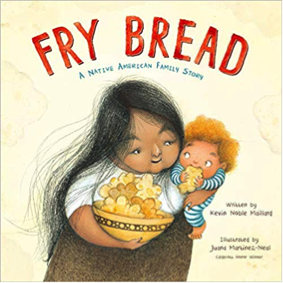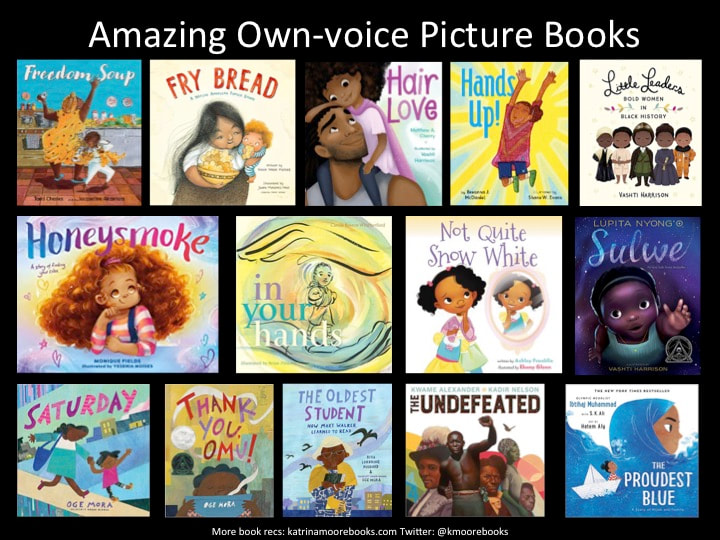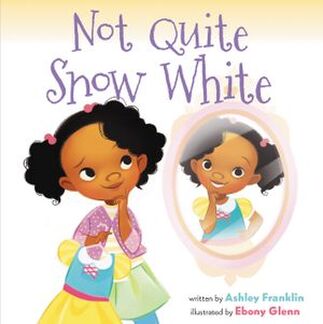|
Hello, Writers! While most of my writing posts are craft-based, this one is going to address the other side of the coin that makes a writer successful...being a reader. Are you being a responsible reader? Are you respecting the reader you're writing for? From the moment children are born, they are amazing humans. They take in the world, make sense of it, and act accordingly. From the moment they are born. Therefore, as the writers for children, the readers of books to children, the buyers of books for children, the grown ups raising and shaping today's children (who will become tomorrow's grown ups), we hold a grave responsibility---whether we want to, or not. Every book we choose, read, buy, and hand to a child teaches them something more about the world (even the funny and absurd ones). We should be choosing books that children will love, yes. It's okay (and great!) to share the ones we loved growing up, too. We want them to become readers, so picking books that will engage them is essential! However, we also need to consciously and considerately think about the books we choose. For example, the first novel I read aloud to my second grade class this year was by one of my favorite authors of all time, Roald Dahl. We read JAMES AND THE GIANT PEACH. But...that book was written in 1961. There is language that is not appropriate, that just wasn't "deemed" inappropriate in 1961. When I read these phrases and words, I make sure to pause, and explain that to the students. "This is not okay to say. It's never okay to say, but sixty years ago, they didn't think about it like that. It's great that we've learned since then and can read this now and know that it's not okay." Sometimes, it's a small conversation that we have, and sometimes, it's just something important to note, and then keep reading. So what questions should be we asking? Here are some that I think about when selecting stories to share: What might a child take away from this book? What perspective have I shown? Whose story have I shared? Whose story is missing from this narrative? Am I sharing books that reflect this child's experiences? Am I sharing a range of voices, experiences, and perspectives? As we know, it's important for there to be enough literature to both reflect all children's experiences, and provide windows into experiences they are unfamiliar to. Am I respecting the child's intelligence--their ability to absorb and comprehend complex information? Am I giving them access to literature that will build empathy? Am I allowing them to ask questions? Or, am I guarding them because I don't know the answers? Remember, from the moment children are born, they are amazing humans. They take in the world, make sense of it, and act accordingly. I am not suggesting exposing children to content or writing that is not age-appropriate. But I do believe that *how* you have a conversation about a tough topic is important. It's okay to not have the answers. In fact, it helps children understand that we are still learning, too. And empowers them. I've been surprised and impressed by the deep conversations I've had with first graders, second graders, and my own kindergartener and preschooler. When I read NOT QUITE SNOW WHITE, written by Ashley Franklin and illustrated by Ebony Glenn, to my second grade class in the beginning of the year, I did not present it as an alternate Snow White book. The little information I gave before reading was, "this is a book I love. I'm excited to read it to you and hear what you think," which is how I present most books that I read to children. Afterwards, a second grader raises their hand and says, "the words the other kids said are mean. That's not nice. I'm glad Tameika got to be Snow White because anyone should be able to be Snow White." A six year old said that. And it lead to a wonderfully deep conversation about race, confidence, and treating each other with respect.
When I read Kevin Maillard and Juana Martinez-Neal's FRY BREAD, to my kindergarten daughter and preschool son, they poured over each gorgeous illustration. My kindergartener pointed out that "their family members look all different, like in our family." When we read the lyrical and powerful words about how fry bread was made from the few ingredients given to the people after they were forced to move, my daughter wanted to know more. So we read the beautiful back matter. She asked tough questions. My preschooler said, "That's not fair. That's not nice." And I said, he was right. We talked about how it's important we remember that it happened, so that we do better now. It was a tough conversation, but I'm thankful for that beautiful book for opening us up to the conversation in a way that was accessible to my young children.  Here's my online review of FRY BREAD: "Read FRY BREAD to my second grade students. They loved it (me too!). What a powerful, important, beautiful book this is! It affirms Native people's lives and shows the loving, thriving, diverse community of Native Nations. Through lyrical text, stunning art, and thoughtful, honest back matter, this book shares an authentic, ownvoice perspective of history that is important for all children to know. It led to thoughtful discussion and so many wonderful questions. I highly recommend this for every early childhood and elementary classroom. And for families everywhere. Also, we all want fry bread, now!" Here are some more books that I've personally shared with students and my own young children. They're books that have sparked special and meaningful conversations. They're books that are among our favorites. What I've previously posted about HONEYSMOKE: "This is a tender and heartwarming book about a girl discovering her own color. She draws inspiration from mom and dad to come up with a color that’s all her own. I love the message presented here of finding your own color to express yourself. Readers, young and old, will be inspired to find their own color after reading this book. The illustrations are beautifully rendered---vibrant yet soft, bold yet gentle. As the parent of bi-racial children, I’m so glad this book is in the world and on our bookshelf. It’s one we’ll enjoy together, again and again!" What I've previously posted about HANDS UP: "HANDS UP is full of warmth and energy. It spins a phrase that has a negative connotation into one that is empowering and joyful. This book is a powerful celebration of the different ways we put our hands up---in happiness, in helping, in hope. Highly recommend!" What I've previously posted about THE OLDEST STUDENT: "THE OLDEST STUDENT is the incredibly inspiring and true story of Mary Walker. She learned to read at age 116! This book is beautifully written, capturing the perseverance, independence, and grit of the nation’s oldest student. Breathtaking illustrations. My second graders loved this—it sparked rich conversations and ignited excellent questions. This book belongs on every bookshelf!" Here's another great list: 31 Books To Support Conversations On Race, Racism, and Resistance, here: (there is some overlap and I haven't personally read all of these books, but I plan to!) https://blog.usejournal.com/31-childrens-books-to-support-conversations-on-race-racism-and-resistance-9dbabc28360e One of my favorite independent bookstores, Red Balloon Bookshop, St. Paul, MN, curated an amazing list of books, too. Check it out & purchase books here: https://www.redballoonbookshop.com/black-lives-matter?fbclid=IwAR0O5V6AVkRo4I7ua0A5-7ZG2My6CYkZ0ea6JPCrGqnT_XEpq6tPieQgVfs Literacy Activist and Librarian Edi Campbell shares a phenomenal list of books for children on this matter, too: https://crazyquiltedi.blog/2020/06/03/books-for-black-children/ You may also want to check out this list of own-voice books, organized by age group, by PenguinRandomHouse: https://storage.googleapis.com/classroom-portal-production/uploads/2020/06/5ff1a5e0-k12-black-creators-booklist.pdf HarperCollins Children's also shared a great thread of books by Black creators from the youngest reader through middle grade: https://twitter.com/HarperChildrens/status/1268225844134232069?s=20 Reading inclusive, own-voice literature is not something that should be done during a designated month only, or in the aftermath of a tragedy. The way to raise empathetic humans, to lay a strong foundation today as we grow tomorrow's adults, is to make this a regular, all-the-time practice. As an important gatekeeper---a teacher, a parent, an author, a gift-giver, a book-reader, a human, it's important that I stay informed, educated, and keep the child-reader's needs at the center of every book choice I do (and don't) make. The inclusive books I share are part of my daily read-alouds in my classroom. In my house, they are prominent on the shelves with other favorite books. They're not in a "multicultural" bin or stashed away. These are books we read because we love the story, the language, the illustrations. We want to reread them again and again, because they are great books. So...let's reflect: What questions are you asking young readers? What questions are you allowing them to ask you? What access are you giving them to content that will enrich and enlighten their view of themselves and of others? When we center, and give access to books that represent underrepresented voices (but equally as important and much needed voices), we are slowly, but strongly, brick by brick, home by home, heart by heart, child by child, building a better world, And, hopefully, these children we're shaping---they'll take in the world, make sense of it, and act accordingly. (Please note: this is only a tiny fraction of the own-voice picture books I love. Please add more own-voice picture books that *you* love and recommend in the comments. I want to continue to grow my list.) Let's build a better world together 🌍💜 -Katrina  Katrina Moore writes in New Jersey. She holds a M.A. in Teaching and has been an elementary teacher for ten years. Her mission is to create books that children will hug for ages. ONE HUG, illustrated by Julia Woolf, is a lyrical celebration of the different ways that hugs bring people together (HarperCollins/Tegen Books, Dec. 2019). GRANDPA GRUMPS, illustrated by Xindi Yan, is a humorous and heartfelt story featuring Daisy, and how she connects with her Chinese grandfather across cultures and generations (Little Bee Books, April 2020). Her humorous chapter books series, TEENY HOUDINI, illustrated by Zoe Si, stars the magical, mischievous, mayhem-maker Bessie Lee. Books 1 and 2 will publish Winter 2022 (HarperCollins/Tegen Books). More to-be-announced books are on the way! When she is not writing or teaching, she is cooking without a recipe, painting outside the lines, or snuggling up with her two kids, husband, pups, and of course, a cozy book. Connect with her on twitter @kmoorebooks or at www.katrinamoorebooks.com.
5 Comments
Lisa Riddiough
6/2/2020 07:09:25 am
Thank you for this post, Katrina. So well said. And I love your list of favorite books.
Reply
6/3/2020 05:36:12 am
Hi Lisa, Thank you for reading, for listening, and for being part of the conversation. <3
Reply
Rose Cappelli
6/3/2020 05:21:46 am
Thank you, Katrina. “Heart by heart, child by child” we will build a better world together
Reply
Leave a Reply. |
AuthorKatrina Moore is an author and former elementary educator. She writes in Georgia. where her mission is to create books that children will hug for ages. She's the author of ONE HUG, GRANDPA GRUMPS, SOMETIMES LOVE, GRUMPY NEW YEAR, HOPE IS A HOP, and the forthcoming CHANG'E ON THE MOON (HarperCollins, 2024), and THE STAR IN YOU. (RBP/Macmillan, 2024), as well as the humorous TEENY HOUDINI chapter book series, starring the magic-loving, mischief-making Bessie Lee, and more. Connect with her on twitter! Freelance EditorKatrina has professionally critiqued over hundreds of picture book manuscripts at writing conferences she has presented at, through her work as a council member, mentor, and presenter for the Rutgers One-on-One-Plus conference, as a Critique Ninja, and through her freelance editing services. Her editorial work and services, attention to detail, and ability to bring manuscripts to the “next level” have been highly praised by editors, agents, published authors, and those receiving critiques. For more details, and to inquire about rates, contact Katrina.
Archives
November 2023
Categories
All
|


 RSS Feed
RSS Feed